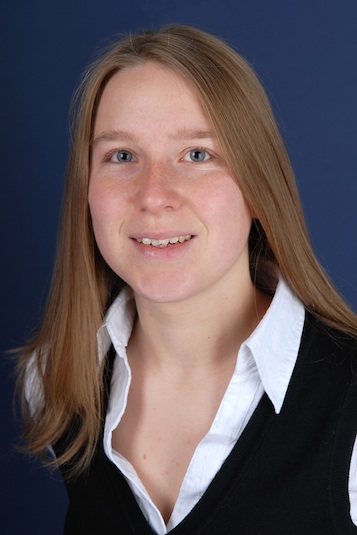Typ: Seminar
Semesterwochenstunden: 2+0
Seminar: Serious Games
Description
In parallel to the theory, students design their own serious game and discuss how they applied the theoretic knowledge.
The course language is English.
Goal
The goal of the course is to design a serious game while backing up this design with scientific background about learning and motivation.Prerequisite
Course Details
- SWS: 4 ETCS
- Preliminary talk / Info meeting: Tuesday February, 7st 2012, 2:00 - 3:00 pm, 01.07.014
- Time: Wednesday 2pm
- Room: Seminar room, 01.07.014
- Number of participants is limited to 20
- Mandatory attendance
- Contact: Barbara Köhler and Damir Ismailović
Helpful Software Tools
Latex
If you want to work with Latex and have never done so before, here some good starting point with well working configurations for the different operating systems.
- Use the The Not So Short Introduction to LaTex to get started with LaTex.
- Use this latex template for the essay.
For Windows
- install miktex - TeX implementation for Microsoft Windows
- install TeXnicCenter - integrated development environment (IDE) for developing LaTeX-documents on Microsoft Windows
For Linux
- install Texlive
- install Gummi - LaTeX editor for the Linux platform, written in C/GTK+. It was designed with simplicity in mind, but hopes to appeal to both novice and more advanced LaTeX writers.
For Mac
- Latex on Mac (http://guides.macrumors.com/Installing_LaTeX_on_a_Mac)
- install Texmaker - crossplatform Latex editor
Manage your references
- JabRef is a Java program for comfortable working with Bibtex literature databases. Handy feature: if you know the PubMed ID for an article, JabRef can import data from there (via "Web Search/Medline").
- Mendeley is a cross-platform program for organising your references. helps you keep track of your references, it comes with bibtex-Export to work nicely with Lyx or Latex and a Word extension. Furthermore there is a web importer (http://www.mendeley.com/import/) that lets you directly store the complete information about your reference saving you a lot of time typing that information by hand
Starting Points for Literature Search
This list may help you finding some good points to start your search:
- Microsoft Academic Search
- Google Scholar
- CiteSeer
- CiteULike
- Collection of Computer Science Bibliographies
Some publishers:
- ScienceDirect (Elsevier Journals)
- IEEE Journals
- ACM Digital Library
Libraries (online and offline):
- http://rzblx1.uni-regensburg.de/ezeit/ (Elektronische Zeitschriften Bibliothek)
- Verbundkatalog des Bibliotheksverbundes Bayern (BVB)
- Computer ORG
- http://www.ub.tum.de/(TUM Library)
- Access to many electronic media (e-books and papers): https://eaccess.ub.tum.de/login
- Most of the time your mytum login will be enough, for some papers however you have to configure your proxy, see http://www.ub.tum.de/medien/ejournals/readme.html
Modalities
You will get a certificate with a grade based on the following criteria:
- Ability to do independent research: do literature research, not only on given initial reading, but also newer papers (of the last three years) and cite them correctly
- Short paper about chosen topic (around 5 pages)
- Oral presentation (15 minutes + 15 minutes discussion) about the selected topic
- Design document of your team (up to 15 pages)
- ACTIVE participation at all the other presentations
Deadlines
- 1st April: Preliminary version of paper (see this as a chance to receive some feedback, before handing in the final version that will be graded)
- 15th April: Final submission of paper
- One week before your presentation: slides
- 11th July: Design Document (might change)
Schedule (prospective)
- weekly meeting (time and dare tba)
| # | Date | Presenter | Topic | Initial Literature | Reviewer |
|---|---|---|---|---|---|
| 1) | 18.04 |
|
Introduction | ||
| 2) | 25.04 | Stephan Schmoltke |
What is a game |
Game Design Workshop, Tracy Fullerton, Part I - Chapter 2 – The structure of Games The Art of Game Design, Jesse Schell, Chapter 3 – So what is a Game? |
Damir |
| Markus Schichtl | What are serious games and why might they be suitable as learning tools? |
Developing serious games, Bryan Bergeron, Chapter 2 - Working Context
The role of play in Development What video games have to teach us about learning and literacy, James Paul Gee |
Damir | ||
| 3) | 02.05 | Daniel Schosser | Why do people play? |
Game Frame, Aaron Dignan |
Barbara |
| Anand Kapadia | Emotions in games and serious games |
On the Way to Fun, Roberto Dillon, Chapter 1
Creating emotion in games, David Freeman Deep Learning and Emotion in Serious Games, Arthur Graesser, Patrick Chipman, Frank Leeming, and Suzanne Biedenbach GameFlow: A model for Evaluating Player Enjoyment in Games, Penelope Sweetser, P. Wyeth |
Barbara & Damir | ||
| 4) | 09.05 | Nicolas Corpancho | Game Design |
Game Design Workshop, Tracy Fullerton, Part 2 – Chapter 1 – The role of the Game Designer The Art of Game Design, Jesse Schell |
Barbara |
| Matteo Harutunian | Constructivism and differentiation from Behaviourism and Cognitivism |
Pianos not Stereos: Creating Computational Construction Kits Cognition and learning, James G. Greeno, Allan M. Collins |
Barbara | ||
| 5) | 16.05 | na |
Zone of Proximal Development and Social Development Theory |
Mind in society, Vygotsky, Zone of Proximal Development: A new Approach + The development of higher mental processes
Interaction between learning and development, Vygotsky |
Barbara |
| Daniel Richter | Scaffolding | Software-Realized Scaffolding to Facilitate Programming for Science Learning, Mark Guzdial | Barbara | ||
| 6) | 23.05 | Workshop | |||
| 7) | 30.05 | na |
Goal Based Scenarios |
The design of Goal-Based Scenarios, Roger C. Schank, Andrew Fano, Benjamin Bell, and Menachem Jona Goal-Based Scenarios, Jörg Zumbach |
Barbara |
| na | Pedagogical Models |
Taxonomy of Educational Objectives, the Classification of educational goals, Benjamin S. Bloom
The 8 Learning Events Model: A Pedagogic Conceptual Framework for the Design of Dedicated Scenarios, D. Verpoorten, M. Poumay, D. Leclercq |
Damir | ||
| 8) | 06.06 | Intermediate Design Critiques |
|||
| 9) | 13.06 | Eva Maria Gibtner |
Learner Modeling |
M. D. Kickmeier-Rust and D. Albert, The ELEKTRA ontology model: A learner-centered approach to resource description, 2008. | Barbara |
| Florian Hartmann | Detecting and Classifying Learner Performance |
M. D. Kickmeier-Rust, C. Hockemeyer, D. Albert, and T. Augustin, Micro Adaptive, Non-invasive Knowledge Assessment in Educational Games, in Second IEEE International Conference on Digital Games and Intelligent Toys Based Education, 2008 Vicente, A.D., 2003. Towards tutoring systems that detect students; motivation: an investigation. Institute for Communicating and Collaborative Systems School of Informatics University of Edinburg Modritscher, F., 2006. Towards Formalising Adaptive Behaviour Within the Scope of E-Learning. Mödritscher, F., Garcia-Barrios, V.M. & Gutl, C., 2004. The Past, the Present and the Future of adaptive E-Learning. 2004 |
Damir | ||
| 10) | 20.06 | Alexandros Verikios | Serious Games Applications |
M. Ulicsak, Games in Education : Serious Games, 2010. D. Ismailović, D. Pagano, and B. Brügge, weMakeWords - An adaptive and collaborative serious game for literacy acquisition, in IADIS International Conference - Game and Entertainment, 2011. M. D. Kickmeier-Rust, D. Schwarz, D. Albert, D. Verpoorten, J. L. Castaigne, and M. Bopp, The ELEKTRA project: Towards a new learning experience, 2006. S. D. Rodriguez, I. Cheng, and A. Basu, âMultimedia Games for Learning and Testing Physics, in International Conference on Multimedia and Expo, 2007 Web: http://fold.it/ |
Damir |
| Aram Messdaghi | Pedagogical Agents |
Cognitive Tutors, Kenneth R. Koedinger and Albert Corbett Cognitive Tutors Lessons Learned, John R. Anderson, Albert T. Corbett, Kenneth R. Koedinger, Ray. Pelletier |
Damir | ||
| 11) | 27.06 | Diana Babiac |
Experiments in Educational Settings |
Barbara | |
| 12) | 04.07 |
Workshop |
|||
| 13) | 11.07 | Final Design Presentation |
|||
| 14) | 18.07 |
Workshop |
|
||
| 15) | 25.07 | Workshop |
To apply
Send an email to Barbara Köhler with:
- Name
- Matrikel number
- Bachelor/Master & Major subject (e.g. Bachelor Computer Science)
- Semester
- Experiences with games
- Experiences with serious games
- Short motivation why you want to attend the course
Professor
 |
Prof. Bernd Brügge, Ph.D. |
Contact
 |
Barbara Köhler |
 |
Damir Ismailović |

